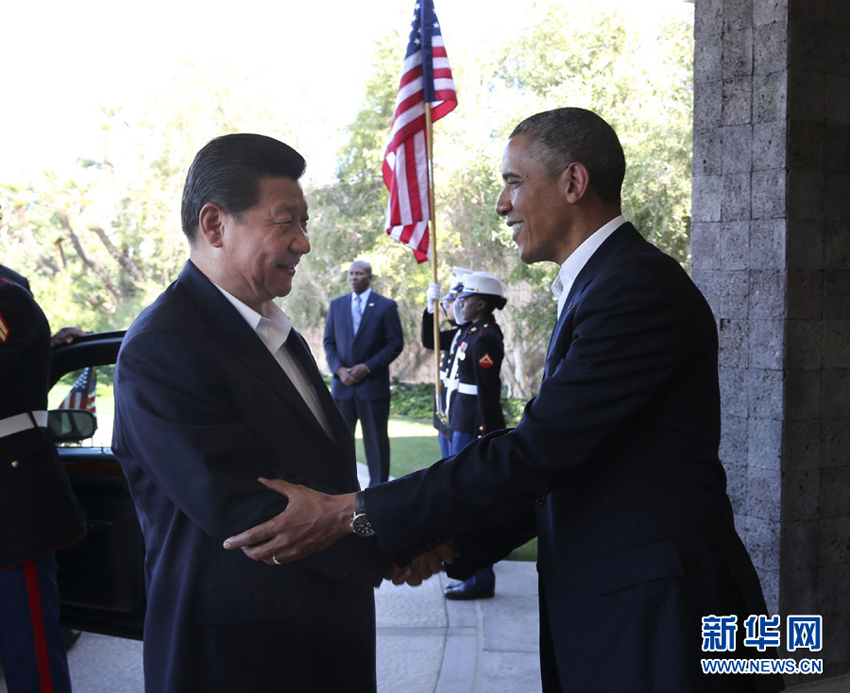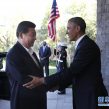
Xi Jinping’s Visit to the United States to Highlight Internet Rules, Economic Cooperation, Differences
Publication: China Brief Volume: 15 Issue: 18
By:

Chinese President Xi Jinping is set to visit the United States next week, the seventh time since he first visited the country as Secretary of Zhengding County in Hebei in 1985 (People’s Daily Online, September 16). According to Chinese Ministry of Foreign Affairs (MFA) Spokesperson Lu Kang, President Xi will visit the United States from September 22–28, spending the last two days in New York City for a Summit celebrating the 70th anniversary of the founding of the United Nations (MFA, September 16). The White House has welcomed the visit, stating that Xi’s visit presents “an opportunity to expand U.S.-China cooperation… while also enabling President Barack Obama and President Xi to address areas of disagreement constructively” (White House, September 15). That wording carefully encapsulates a whole range of issues, from wary economic and diplomatic cooperation to accusations of hacking and differing views of territorial disputes.
Having made the journey from rural committee secretary to supreme leader, President Xi is visiting the United States from a position of strength. Xi has continued to ride a wave of popularity, enjoying a level of approval similar or even surpassing that of Russian President Vladimir Putin. Media savvy and charismatic (compared to previous Chinese leaders), Xi has created a new persona and an active foreign policy for the Chinese Communist Party (CCP) that Chinese people, particularly jiulinghou (literally, post 90s; people born after 1990) young professionals find refreshing and empowering. Though economic issues and intraparty squabbling have certainly placed stress on the central leadership, the surge of national pride after the World War II Anniversary Parade has surely contributed to Chinese confidence on the world stage and in the CCP’s leadership (China Brief, July 17).
Though territorial disputes and strong disagreement on cyber-related issues continue to cloud, Xi and Obama seem to maintain a surprisingly warm relationship. China’s foreign minister, Wang Yi, has emphasized that this is Xi’s third visit in three years (Xinhua, September 16). Obama has credited China’s role in the Iran deal—arguably the biggest foreign policy coup of his administration (China Brief, July 17; White House, July 21). U.S.-China cooperation on clean energy and environmental issues, another priority for the Obama administration, is likely to be an area with strong potential for agreement, as Chinese and U.S. leaders enact legislation meant to curb pollution and reduce dependence on fossil fuels. U.S. companies looking to China for expanded growth are seeking to capitalize on the summit, with a number of top U.S. and Chinese business leaders, including investor Warren Buffett and Alibaba’s Jack Ma set to meet with Xi Jinping in Seattle (People’s Daily Online, September 17; Phoenix News Online, September 17; MFA, September 17). Correspondingly, China is looking to grow its economy by “moving up the value chain,” through producing higher-end industrial goods in cooperation with the United States and European nations (China Brief, September 17).
One area that is certain to be discussed is Washington and Beijing’s divergent views on hacking and information systems. Industrial espionage via hacking attacks has been a major source of tension over the past few years, culminating last year in the indictment of five Chinese state actors for hacking U.S. industries (U.S. Department of Justice, May 19, 2014). Extensive intrusions into the information systems of the Office of Personnel Management, though widely acknowledged as a “legitimate” target of espionage, have not improved matters. With pressure mounting to take action, Obama signed an executive order that targets hackers at the beginning of April this year, which is believed to be soon followed by more extensive sanctions on China later this year (White House.gov, April 1).
China has responded by downplaying its role in such attacks and insisting that it is cracking down domestically on cyber-crime. China has recently passed national security and internet security laws that increase national oversight, regulation and control of the internet (Xinhua, July 1). This follows an international campaign by China to “wall off” sections of the internet, with the ultimate goal of a Chinese “intra-net” (China Brief, September 4). Xi Jinping has made internet security a priority, linking information systems and security, by stating that “without internet security there is no national security, without informatization, there is no modernization” (People’s Daily Online, August 6).
Chinese special representative and Politburo Central Committee member Meng Jianzhu visited the United States at the beginning of September and met with a number of top U.S. officials, including Secretary of State John Kerry and National Security Advisor Susan Rice. The meetings evidently included significant discussion of internet security and cyber-crime, likely as a means of reaching consensus ahead of Xi’s visit (Phoenix News, September 14).
This summit will be among the last significant meetings between the two leaders during Obama’s tenure. Should he fail to clearly articulate the United States’ position and leave Xi with an impression of weakened U.S. resolve, it will certainly hurt the United States’ long-term policy goals with China and Asia in the run up to the 2016 presidential election.




